

By Robert Simonson27 May 2008
Few performers in recent Broadway history have made as instantaneous an impact with their debut role than has Paulo Szot, the Emile de Becque in Lincoln Center Theater's new revival of South Pacific.
The opera singer, a native of Brazil, has been hailed as magnetic, romantic, and altogether winning as the French farmer trying to forge a bond with Ensign Nellie Forbush amid a backdrop of war. He has been nominated for the Leading Actor in a Musical Tony Award and has already won Drama Desk, Theatre World and Outer Critics Circle Awards for his performance. The handsome, strapping Szot has performed with such opera companies as New York City Opera, Boston Lyric Opera, Theatre National de Bordeaux, and Opera Marseille, but it's likely that he will now enjoy a dual career, shuttling back and forth between opera and theatre. And, as he tells it, if he had not been performing in Boston at the time LCT's call for auditions went out, South Pacific may never have found its male lead. The shy, humble performer spoke to Playbill.com (in increasingly fluent English) about his stroke of good fortune.
Playbill.com: What was it that caused you to audition for South Pacific in the first place?Paulo Szot: I received a call from my agent and he said they were looking for an opera singer. I was in Boston at that time doing Le Nozze di Figaro and I decided to come for this. It was very convenient. It was very close.
Playbill.com: So maybe if you had gotten the call when you were in Vienna or somewhere else far away, you might have never auditioned.PS: Exactly.
Playbill.com: Did you think at the time that, if they actually offered you the role, you would do it?PS: First of all, I didn't think they would give me the role. I was doing one of the many auditions I do whenever I am in town. I didn't think it would be very probable to hire a Brazilian to do a French role in the United States on Broadway, you know? (Laughs)
Playbill.com: Now that you've been in the role for some time, what is your impression of a life in the theatre, as opposed to a life in the opera?PS: These last four months have been incredible. I remember the first rehearsal at the theatre. I got home and I thought, I'm going to get the next flight back to São Paulo, because I was so afraid of everything. Somehow I stayed, because I had so many people who supported me at the theatre. I have to say I'm very pleased that I stayed. I was willing to do something new in my career. I've been singing opera for the last 12 years.
Playbill.com: Obviously you've been on many opera stages, but for someone with little theatre experience you seem very natural and confident on stage.PS: Well, I did not have any education on acting. I thought the only thing I could offer to the audience could be my honesty. I decided to be natural and honest with them, and that's the way I feel good on stage doing this new thing for me.
Playbill.com: What are the differences between singing for the theatre as opposed to the opera? Obviously, you have to eight shows a week in the theatre. You don't do that in opera.PS: No, I don't. That's the main challenge. I was not used to that. The physical aspect, that's the main thing. It's not vocally, it's just physical. The first weeks were very difficult. But I'm getting used to it and finally getting to enjoy it.
Paulo Szot in South Pacific
photo by Joan MarcusPlaybill.com: Is the music in South Pacific easier to sing than that in your average opera?PS: I think it's the same kind of energy I use singing a Don Giovanni performance or singing a South Pacific show. I think it's the same intensity. It's the only way I know how to do it.
Playbill.com: Do you have a favorite song in the score to sing?PS: Well, I do love "Some Enchanted Evening" very much. And, of course, "This Nearly Was Mine" is a special moment for me. It's a moment when I feel very connected to the audience and I do feel very emotional. I have to be careful.
Playbill.com: I felt that connection between you and the audience when I saw the show. It's unusual, a connection that palpable. It's not that easy to achieve.PS: I love that feeling. I think many things could be the reason for that. One of them is the audience is so close to the stage. The other is they're so familiar with all the songs and they're willing to hear them, because it's been a long time since they heard them on Broadway. I'm very glad to have this kind of connection with them. I feel them all the time, singing along, and that makes me very happy.
Playbill.com: I read that you had to cancel some opera roles in order to do this part. Now that's it's been extended, have you had to cancel still more operas?PS: I cancelled three operas in Brazil. But this is something that I really wanted to do and really wanted to continue. I'm finding this experience very nice as an artist. I'm feeling all the time it's changing and I'm feeling different things, so I really wanted to stay with the show a little longer.
The opera singer, a native of Brazil, has been hailed as magnetic, romantic, and altogether winning as the French farmer trying to forge a bond with Ensign Nellie Forbush amid a backdrop of war. He has been nominated for the Leading Actor in a Musical Tony Award and has already won Drama Desk, Theatre World and Outer Critics Circle Awards for his performance. The handsome, strapping Szot has performed with such opera companies as New York City Opera, Boston Lyric Opera, Theatre National de Bordeaux, and Opera Marseille, but it's likely that he will now enjoy a dual career, shuttling back and forth between opera and theatre. And, as he tells it, if he had not been performing in Boston at the time LCT's call for auditions went out, South Pacific may never have found its male lead. The shy, humble performer spoke to Playbill.com (in increasingly fluent English) about his stroke of good fortune.
Playbill.com: What was it that caused you to audition for South Pacific in the first place?Paulo Szot: I received a call from my agent and he said they were looking for an opera singer. I was in Boston at that time doing Le Nozze di Figaro and I decided to come for this. It was very convenient. It was very close.
Playbill.com: So maybe if you had gotten the call when you were in Vienna or somewhere else far away, you might have never auditioned.PS: Exactly.
Playbill.com: Did you think at the time that, if they actually offered you the role, you would do it?PS: First of all, I didn't think they would give me the role. I was doing one of the many auditions I do whenever I am in town. I didn't think it would be very probable to hire a Brazilian to do a French role in the United States on Broadway, you know? (Laughs)
Playbill.com: Now that you've been in the role for some time, what is your impression of a life in the theatre, as opposed to a life in the opera?PS: These last four months have been incredible. I remember the first rehearsal at the theatre. I got home and I thought, I'm going to get the next flight back to São Paulo, because I was so afraid of everything. Somehow I stayed, because I had so many people who supported me at the theatre. I have to say I'm very pleased that I stayed. I was willing to do something new in my career. I've been singing opera for the last 12 years.
Playbill.com: Obviously you've been on many opera stages, but for someone with little theatre experience you seem very natural and confident on stage.PS: Well, I did not have any education on acting. I thought the only thing I could offer to the audience could be my honesty. I decided to be natural and honest with them, and that's the way I feel good on stage doing this new thing for me.
Playbill.com: What are the differences between singing for the theatre as opposed to the opera? Obviously, you have to eight shows a week in the theatre. You don't do that in opera.PS: No, I don't. That's the main challenge. I was not used to that. The physical aspect, that's the main thing. It's not vocally, it's just physical. The first weeks were very difficult. But I'm getting used to it and finally getting to enjoy it.
Paulo Szot in South Pacific
photo by Joan MarcusPlaybill.com: Is the music in South Pacific easier to sing than that in your average opera?PS: I think it's the same kind of energy I use singing a Don Giovanni performance or singing a South Pacific show. I think it's the same intensity. It's the only way I know how to do it.
Playbill.com: Do you have a favorite song in the score to sing?PS: Well, I do love "Some Enchanted Evening" very much. And, of course, "This Nearly Was Mine" is a special moment for me. It's a moment when I feel very connected to the audience and I do feel very emotional. I have to be careful.
Playbill.com: I felt that connection between you and the audience when I saw the show. It's unusual, a connection that palpable. It's not that easy to achieve.PS: I love that feeling. I think many things could be the reason for that. One of them is the audience is so close to the stage. The other is they're so familiar with all the songs and they're willing to hear them, because it's been a long time since they heard them on Broadway. I'm very glad to have this kind of connection with them. I feel them all the time, singing along, and that makes me very happy.
Playbill.com: I read that you had to cancel some opera roles in order to do this part. Now that's it's been extended, have you had to cancel still more operas?PS: I cancelled three operas in Brazil. But this is something that I really wanted to do and really wanted to continue. I'm finding this experience very nice as an artist. I'm feeling all the time it's changing and I'm feeling different things, so I really wanted to stay with the show a little longer.







































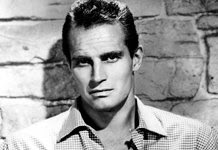

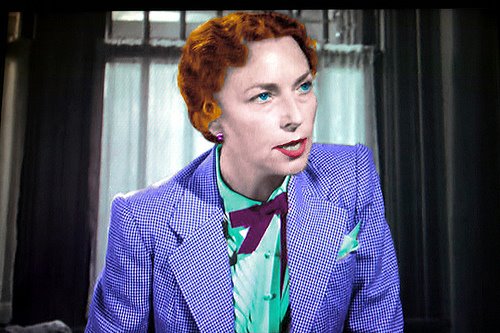



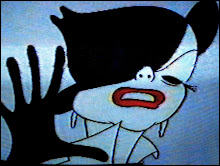.jpg)

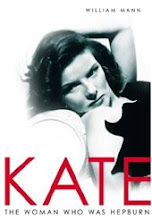


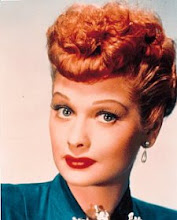






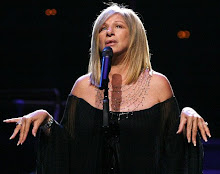

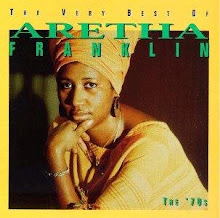
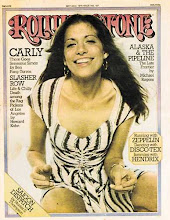









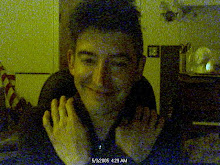





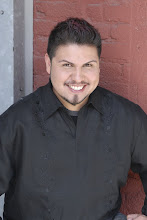











No comments:
Post a Comment